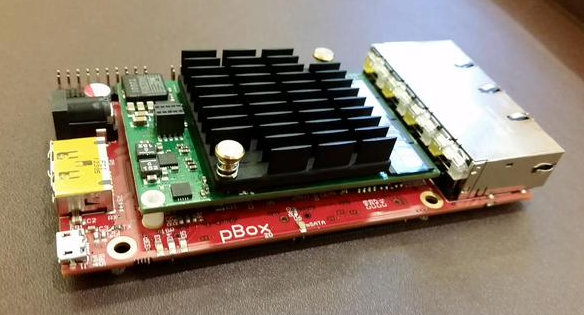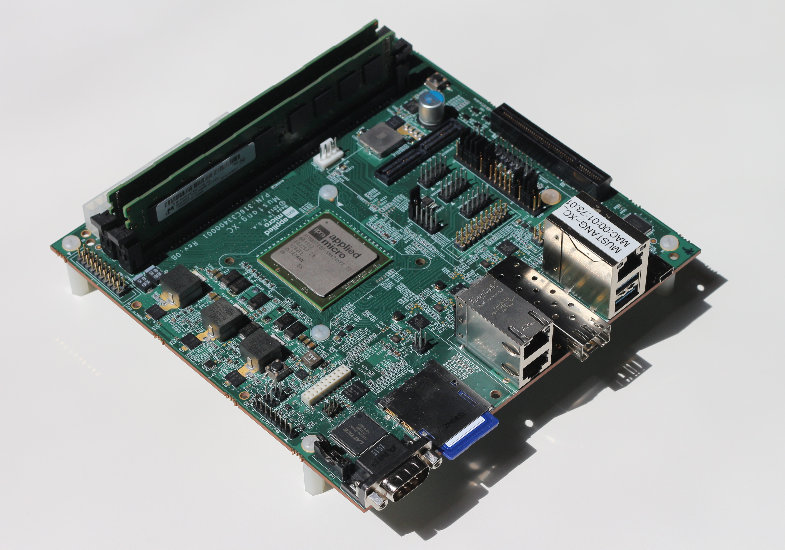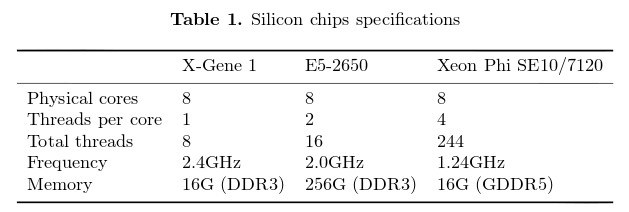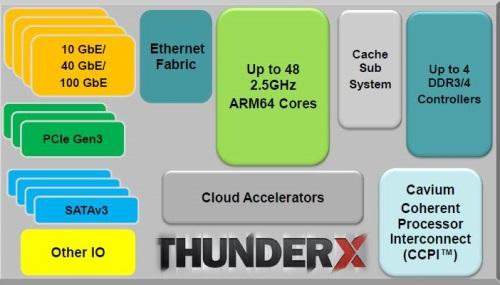HiSilicon has showcased their latest server SoC and board at Linaro Connect Hong Kong 2015, with up to two processors with 32 Cortex A57 cores @ 2.1GHz, 8 DIMM DDR3 slots (up to 128 GB RAM), 12 SATA ports, 4 PCIe slots, 10GbE / GbE ports. D02 board specifications: SoC – Hisilicon PhosphorV660 Hip05 with 16 to 32 ARM Cortex-A57 cores @ up to 2.1GHz and 1MB L2 cache/cluster, 32MB L3 cache System Memory – 2x Memory channel 4x DDR3 DIMM(4x DIMM per processor) Storage 12x SAS 3.0 ports @ 12 Gbps (8 for the first processor, 4 for the second). SAS port are compatible with SATA drives. You may want to read SAS vs SATA post for more details about SAS. 2x SPI Flash 158Mb BIOS/UEFI 1Gb NorFlash Connectivity – 2×10/100/1000Mbit/s Gigabit Ethernet ports, 2x xGE SFP+ ports (10Gb/s) Expansion – 2x 8x PCI express interfaces per processor (4 […]
Online Labs pBox (C1 Node) is a mini ARM Server with 4 Gigabit Ethernet Ports, mSATA and mPCIe Slots
Online Labs, a subsidiary of Iliad (free), recently launched hosting services with dedicated ARM servers based on Marvell processor with modules they call C1. The company has decided to design a baseboard (pBox) for C1 module, and, as I understand it, plans to sell it to the public. It’s an exciting development for those who are looking for affordable and tiny purpose built Linux ARM servers. Preliminary C1 Node / pBox mini server specifications (based on C1 specs and bits of information gathered online): SoC – Marvell Armada 370/XP quad core ARMv7 processor @ up to 1.2 GHz System Memory – 2GB RAM Storage – 256 MB NAND flash + mSATA slot + eSATA port + micro SD slot Connectivity – 4x Gigabit Ethernet ports USB – 1x micro USB port Expansion – mini PCie, 1x 20-pin header for expansion (no details yet) Debugging – 20-pin JTAG connector Power Supply […]
Applied Micro XC-1 Server Development Board (Mustang) is Now Available to Developers for $895
64-bit ARM server boards such as Applied Micro XC-1 Mustang and AMD Opteron A1100 development kit have been available since the beginning of the year, but only to selected companies, and at a price of several thousand dollars per board. Applied Micro is now offering their X-Gene based XC-1 development board to individual developers for $895, or about ~40% discount to the $1495 company now have to pay for the board. It may also be available from distributors (part number: EV-883208-X1-PRB-1). XC-1 board (codenamed Mustang) technical specifications: SoC – Applied Micro X-GeneAPM883208-X1 8-core ARM 64-bit @ 1.6 GHz System Memory – 2x DDR3 UDIMM memory slots up fitted with 2x 4GB sticks (8 GB), upgradable to 16GB Storage – 1x 128Mbit SPI NOR Flash for booting, 1x SATA 3 ports, SD card slot, 1024Kb and 256Kb I2C EEPROM Connectivity – 2x Gigagit port (SGMII), 10 GbE SFP+ cage, 1x Gigabit […]
Applied Micro X-Gene (64-bit ARM) vs Intel Xeon (64-bit x86) Performance and Power Usage
A group of researcher at CERN have evaluated Applied Micro X-Gene 1 64-bit ARM XC-1 development board against Intel Xeon E5-2650 and Xeon Phi SE10/7120 systems, and one of them, David Abdurachmanov, presented their findings at ACAT’ 14 conference (Advanced Computing and Analysis Techniques) by listing some of the issues they had to port their software to 64-bit ARM, and performance efficiency of the three systems for data processing of High Energy Physics (HEP) experiments like those at the Large Hadron Collider (LHC), where performance-per-watt is important, as computing systems may scale to several hundred thousands cores. Intel Xeon Phi platform based on Many Integrated Cores (MIC) computer architecture was launched the HPC market, and contrary to the table above features 61 physical cores. Applied X-Gene 1 (40nm process) was used instead of X-Gene 2 built on 28-nm process which was not available at the time. The ARM platform ran […]
64-bit ARM Server Motherboards by SoftIron
We’ve already seen development board such as X-Gene XC-1, and 64-bit ARM servers have been demonstrated by Dell and HP, but SoftIron, a British startup, claims to be the first to provide a production ready ARMv8 solutions for the enterprise server market (e.g. data centers), with its SoftIron 64-0400 and 64-0800 server motherboards powered by Applied Micro X-Gene quad and octa SoC. Although the company did not release complete pictures of the board, they seem to have done a better job with specifications: SoC SoftIron 64-0400 – Applied Micro X-Gene APM883204 with 4x 64-bit ARMv8 cores @ 2.4 GHz, 4x 32-bit ARMv5 cores for Network/Security offloads and Acceleration, and 1x Cortex M3 for server management SoftIron 64-0800 – Applied Micro X-Gene APM883208 with 8x 64-bit ARMv8 cores @ 2.4 GHz, 4x 32-bit ARMv5 cores for Network/Security offloads and Acceleration, and 1x Cortex M3 for server management System Memory – Up […]
Cavium ThunderX Server SoC Features up to 48 ARM 64-bit Cores
ARM SBSA specification for server supports up to 268,435,456 CPU cores for the second level of standardization on one or a combination of SoCs. We’re not quite up there just yet, but Cavium ThunderX is an ARM server SoC with up to 48 cores on a single chip, which is the highest number of cores I’ve ever heard of in an ARM SoC. The company created their own custom processor cores using an ARMv8 architecture license, designing an SoC complies with ARM’s Server Base System Architecture (SBSA) standard with the following key features: ARM based SoC that scales up from 8 to 48 cores with up to 2.5 GHz core frequency with 78K I-Cache, 32K D-Cache, and 16MB L2 cache. Fully cache coherent across dual sockets using Cavium Coherent Processor Interconnect (CCPI) Integrated I/O capacity with 100s of Gigabits of I/O bandwidth 4x DDR3/4 72-bit memory controllers supporting up to 1TB RAM […]
Dedicated Hosting Services on ARM Development Boards (Cubieboard2, Raspberry Pi, ODROID…)
At least two companies have recently launched hosting services using dedicated ARM servers based on low cost development boards: NanoXion with its NX-BOX service powered by PiBox (Raspberry Pi) and CubieBox (Cubieboard 2) microservers, and miniNodes with servers based on Cubieboard2 first, then ODROID development boards, and possibly AllWinner OptimusBoard once/if it becomes available. The PiBox will feature a Raspberry Pi Model B with 512 MB RAM, and 16GB Class 10 UHS-1 microSD card by Samsung, and the dual core Cubiebox comes with 1GB RAM and a Crucial M500 SATA III 120GB SSD. Both NX-BOXes run Linux Debian Server NX distribution, support instant remote reboot, with guaranteed 10 Mbps connectivity for IPv4 & IPv6, and unlimited bandwidth. The boards are all hosted in France. The company expects their ARM servers to be used as private cloud servers, backup servers, private chat servers, web servers, mail servers, DNS Servers, monitoring servers, and […]
Linaro Connect Asia 2014 Opening Keynote – Status and Future of ARMv8 Linux & Android [Video]
Linaro Connect Asia 2014 has just started in Macau today and will take place until Friday. You can follow the sessions live and/or their recordings via Linaro OnAir YouTube Channel. I’ve watched the opening keynote, and embedded the video at the bottom of this post. The keynote focuses on ARMv8 for Linux and Android on servers, mobile devices, digital home, and more, and involves two main speakers: George Grey, Linaro CEO , and Jon Masters, Chief ARM Architecture at Red Hat. The speaker beginning of the video provides some practical information and the schedule for Linaro Connect. The keynote itself really starts around 15:50 with George Grey who spends the first 10 minutes introducing the latest Linaro members: Qualcomm, Mediatek, ZTE, AllWinner and Comcast. He then talks about the new Mobile sub-committee (MOBSCOM) that will focus on big.LITTLE, Android optimization and Android on ARMv8, as well as the soon-to-be-announced Linaro […]








